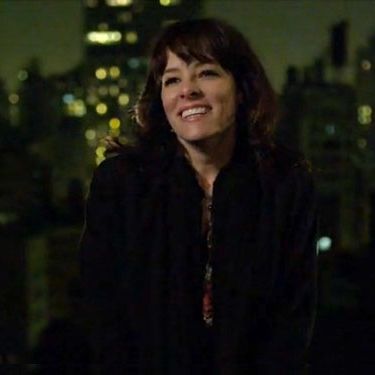
Parker PoseyÔÇÖs episodes of Louie are the most revelatory episodes of a comedy IÔÇÖve seen this year ÔÇö not just because Posey is superb in a brilliantly written role, but because her story line exposed this great seriesÔÇÖ only major weakness: its preference for self-loathing paralysis. Their date showed me a
different, equally great show hiding inside the one I loved. Can Louie function in any other mode? Does it want to? IÔÇÖd like to see it try ÔÇö and after PoseyÔÇÖs revelatory arc, I think it has to.
Alas, an FX spokesperson tells me that Posey isnÔÇÖt in any more episodes this year, and that while thereÔÇÖs talk of bringing her back, nothing has been confirmed. I hope Liz does come back, or that some comparably earth-shaking woman sweeps into LouieÔÇÖs life. The show is realistic enough to make that sort of relationship end appropriately, and no matter how it ended it would be good for Louie and good for the show. His character tends to reject real engagement, either by turning into a bumbling tortoise and blathering incoherently, or by withdrawing into upscale comedian mode and radiating smug detachment. On his date with Liz, he couldnÔÇÖt use either of those defense mechanisms. She wouldnÔÇÖt allow it. She made him alert and engaged again, ran him ragged, and made him face his fears.
ThatÔÇÖs what the scene in the thrift shop dressing room is about: Louie, whose stand-up act often grapples with straight-white-guy privilege, putting on a dress and earning a kiss for his bravery. The scene on the roof? Same deal. Liz doesnÔÇÖt want to jump off the ledge because, no matter what self-destructive tendencies her teenaged cancer scare unleashed, sheÔÇÖs not suicidal. She got a long look into the abyss at 15 and has no desire to leap into it. But she recognizes that desire in Louie. She wants him to join her on the ledge, and when he refuses, she says itÔÇÖs ÔÇ£because a tiny part of you wants to jump.ÔÇØ (That scene on the roof is my favorite TV moment of 2012 to date: PoseyÔÇÖs questing eyes, the skyline behind her, the female vocalists wailing on the soundtrack.)
The look on LouieÔÇÖs face confirms that sheÔÇÖs right. HeÔÇÖs still in extended mourning for his long-dead marriage ÔÇö thus the girlfriend/stepmom auditions happening in his imagination last week, the remark about masturbating to a wedding album that he found in the trash, and the title of those two episodes: ÔÇ£DaddyÔÇÖs Girlfriend, Parts 1 & 2.ÔÇØ On some level, he wishes he were dead. HeÔÇÖs killing himself with food and emotional isolation: death on the installment plan. Will the character delve into this and come to terms with it, or forget about it and go back to stuffing his face and striking out with women who seem nearly as unhappy as him? The former, I hope. Having Louie continue in sad-sack mode indefinitely would be true-to-life but not interesting. Even if Louie tried to change his life and then reverted, it would be preferable to watching him marinate in misery week after week.┬á┬á
ItÔÇÖll be a long time before I can watch Louie bumbling into another social or sexual quicksand pit without thinking, I wish Liz were here. SheÔÇÖs troubled ÔÇö more so than Louie, apparently; volatile, scatterbrained, melodramatic, maybe alcoholic ÔÇö but she also seems to know herself more fully than he does, and sheÔÇÖs openhearted and confrontational, which is only true of Louie when heÔÇÖs onstage. When heÔÇÖs offstage, heÔÇÖs usually passive-aggressive, notwithstanding the occasional burst of raw honesty, as in the episode where he confronts Dane Cook. Liz wonÔÇÖt let Louie escape true engagement by telling her what he thinks she wants to hear or pretending not to have opinions. When Liz tells Louie sheÔÇÖd rather keep walking than take a cab, he demands, ÔÇ£Why, because IÔÇÖm fat?ÔÇØ ÔÇ£Yes,ÔÇØ she replies. ÔÇ£YouÔÇÖre fat, and I have no tits. LetÔÇÖs be honest. ThatÔÇÖs the only way IÔÇÖm gonna continue on this date with you.ÔÇØ She tests his perceptions with deadpan trickery, such as the scene in front of the pool hall where she momentarily convinces him that her parents named her Tape Recorder. She pushes him to experience new things and face his terrors. She seems to own every part of her personality, even the unpleasant parts.
Which brings me to another thing I loved about the Posey episodes: They showed us a world beyond LouieÔÇÖs. There was one important scene that Louie himself didnÔÇÖt personally witness: the exchange between Liz and the bartender, where the bartender refuses to fill her order because ÔÇØ ÔǪ after the last time you were here, IÔÇÖm not gonna start you off two-fisted with Jager.ÔÇØ There have been other moments like thisÔÇö- the most recent one that comes to mind is the bit between LouieÔÇÖs ex-wife and her new boyfriend after his phone call to her ÔÇö but theyÔÇÖve been rare. The Posey episodes affirmed that itÔÇÖs okay for the hero to be offscreen sometimes, and that itÔÇÖs okay to do a whole episode where heÔÇÖs a glorified supporting character, rather than have him stand in the spotlight wincing while the universe pelts him with fruit.┬á
Liz reminded Louie (one hopes) that there is a world beyond his own sad-sack imagination ÔÇö that other people exist and are in pain, too, and that he could learn from them, and even grow, by getting outside himself now and then, and truly listening to other people rather than just reacting and mentally collecting new material for his act. As Louie said in last weekÔÇÖs stand-up routine, ÔÇ£You gotta examine yourself once in a while.ÔÇØ Ditto TV shows.


